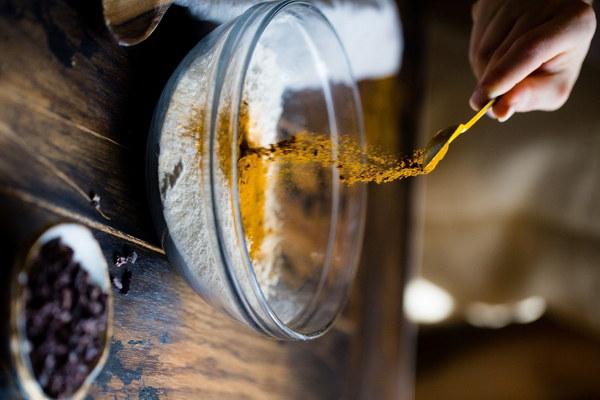Tea Therapy Turned Tragedy A Deep Dive into the Controversial Penalties of the Chinese Health Tea Scandal
In recent years, the booming health tea market in China has been plagued by a string of controversies, with one particular case drawing widespread attention and sparking a heated debate on the regulatory framework surrounding the industry. The case of the Health Tea Scandal serves as a cautionary tale of how a well-intentioned product can turn into a regulatory nightmare, leading to severe penalties for those involved. This article delves into the details of the case and examines the broader implications it has for the health tea industry.
The Rise of Health Teas in China
Health teas have become increasingly popular in China, with consumers seeking natural remedies for a variety of ailments. The market, worth billions of dollars, is dominated by companies promising miracle cures in a cup. However, this rapid growth has also exposed vulnerabilities in the regulatory system, leading to cases of fraud and mislabeling.
The Controversial Product
At the heart of the Health Tea Scandal is a company that marketed its tea as a cure-all, promising to treat everything from cancer to weight loss. The product, labeled as Superior Health Tea, was said to contain a blend of rare herbs and botanicals, each with potent healing properties. Consumers were willing to pay a premium for the promise of good health, but what they didn't know was that the tea was largely ineffective and, in some cases, even harmful.
The Investigation and Penalties
The Chinese authorities eventually launched an investigation into the company, uncovering a web of deceit and illegal practices. The investigation revealed that the tea contained little of the advertised herbs and was, in fact, a mix of inexpensive ingredients. The company was also accused of using false advertising and misleading consumers.
The penalties were severe. The company was ordered to pay millions in fines, and its executives faced criminal charges. The founder of the company was sentenced to prison, marking a rare conviction for a high-profile health scam in China.
The Broader Implications
The Health Tea Scandal has raised several important questions about the regulation of the health tea industry. Here are some of the key takeaways:
1. Lack of Oversight: The case highlights the need for stricter regulatory oversight to ensure that companies do not exploit consumers' desire for health and wellness.
2. Misleading Advertising: The scandal underscores the dangers of misleading advertising, which can lead to consumers making unsafe health decisions.

3. Public Trust: The incident has eroded public trust in the health tea industry, making it crucial for the government to take decisive action to restore confidence.
4. Consumer Education: There is a need for better consumer education on the risks of unregulated health products and the importance of seeking scientific evidence before making health claims.
Conclusion
The Health Tea Scandal serves as a stark reminder of the potential dangers of an unregulated health tea market. While the penalties handed down to the culprits are a step in the right direction, it is clear that more needs to be done to protect consumers and ensure the integrity of the health tea industry. Only through robust regulation, rigorous enforcement, and increased public awareness can the industry be safeguarded against future scandals and maintain the trust of its customers.









